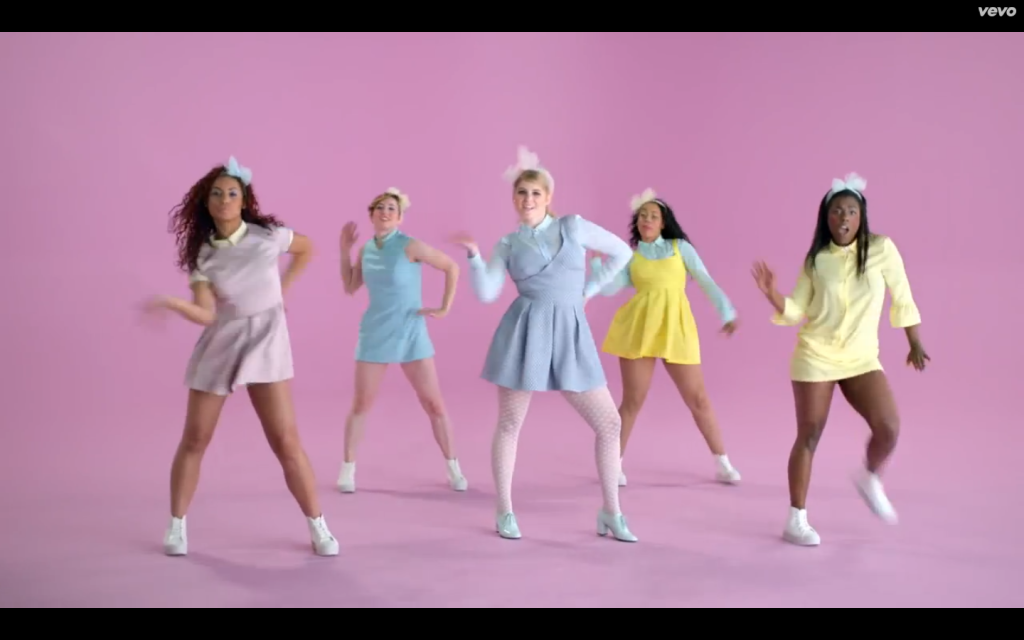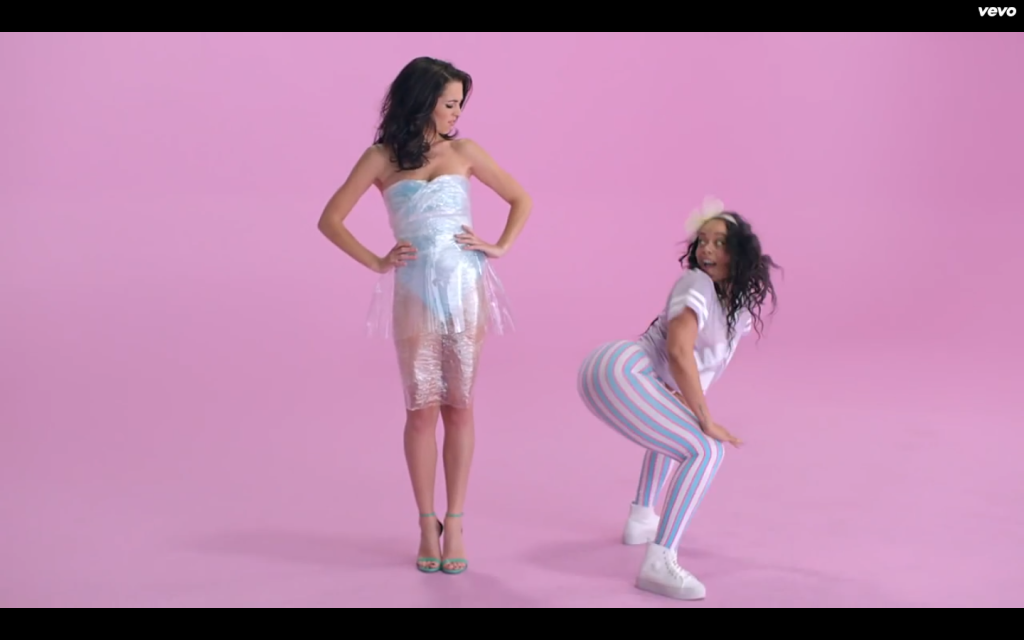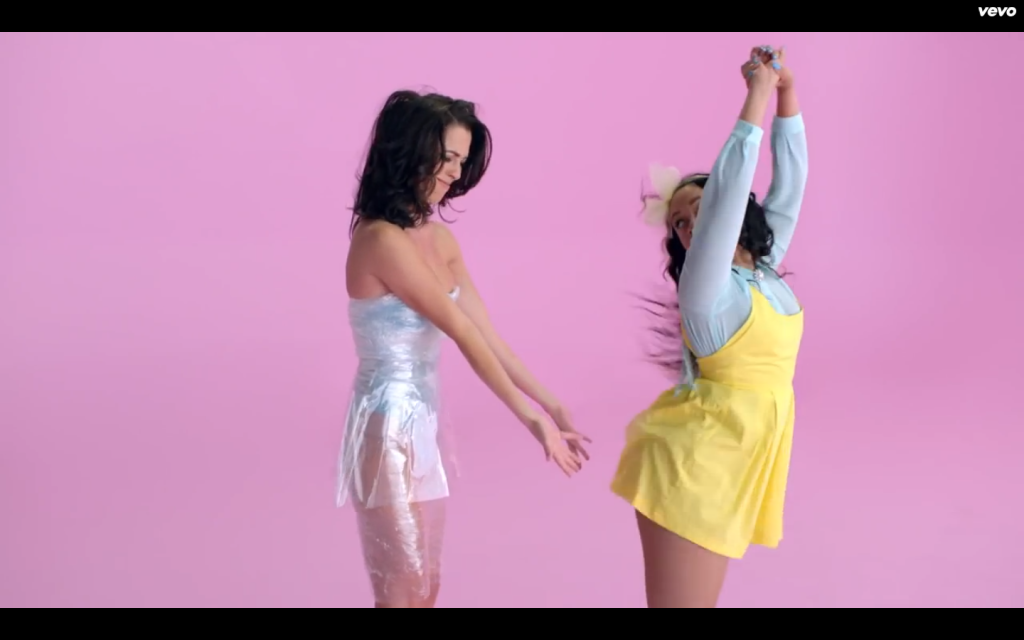Perhaps you’ve heard the media praising Calvin Klein for the “plus-size” model in their new advertising campaign:
The company itself has not branded Myla Dalbesio a “plus-size” model. In fact, they simply released their campaign without calling attention to Dalbesio’s size at all. In a statement made to Elle.com, a representative for the brand lauded the “inclusive” nature of the new “Perfectly Fit” line of underwear:
“The Perfectly Fit line was created to celebrate and cater to the needs of different women, and these images are intended to communicate that our new line is more inclusive and available in several silhouettes in an extensive range of sizes.”
Their “inclusive” new line tops out at a size large for panties, and a size 38DDD for bras, according to the company’s size chart.
In fairness to Calvin Klein, the company has always seemed more plus-size friendly than other famous labels. Some of their ready-to-wear collection goes up to a size 24W. Maybe that’s why media outlets have stirred up controversy by proclaiming their new model “plus-sized.”
For her part, Dalbesio is focusing on the positives of the media scrutiny:
“I love that as the conversation on the internet explodes and brings greater awareness, I am receiving emails from 15 year-old girls, telling me that I have given them hope and that sharing my story has made them feel less freakish, less weird, and that they can accept their size 8 or 10 frame.”
Teens feel insecure about their bodies across the board, and a girl feeling good about herself is always a plus. But is holding up Dalbesio’s figure as an example of a “bigger girl” (a term Dalbesio uses to describe herself) really helping insecure women? Though Dalbesio’s shape is being praised as normal and realistic when compared to the preferences of the fashion world, her body is still considered ideal by current standards of everyday beauty. There’s something disconcerting about a woman who looks like Dalbesio making statements like:
“I had been hoping for a long time that someone would start this, that someone would talk about this, that things might change for girls that are shaped like me in the fashion industry and beyond.” (Today.com)
To many it would appear that Dalbesio has a “Perfectly Fit” body to go along with the ad campaign, yet she’s being framed by the media as a barrier-breaking example of a woman who is attractive despite being burdened with an unfortunate body type, much in the way that Jennifer Lawrence, Kate Winslet, and Salma Hayek have all been branded as “larger” than acceptable women.
The fashion industry is notorious for its worship of the skinny female form. Eating disorders and drug use have long been acknowledged as either dangers of or requirements for models, and Dalbesio herself has struggled with the same insecurities as everyone:
“Do you ever go to the beach and see a woman who’s 300 pounds and wearing a lime green thong and a fishnet cover up? Your like, ‘You look fucking awesome.’ But isn’t that fucked? I’m a model and I still need validation…”
But it’s quite a leap from a three-hundred pound woman in a bikini on the beach and a fit, toned size ten in professional photographs, in both aesthetic and response from society. A woman like Dalbesio may walk the beach feeling like a whale, but the three-hundred pound woman will actually be called one by strangers. While body positivity is for everyone, no matter their size, gender, or race, it’s disingenuous for a model in a major label’s ad campaign to compare herself to a hypothetical parody of an unabashedly fat woman. Yet one can’t help but excuse that remark as a product of the culture Dalbesio is employed in; would she feel the same need for comparison if she were a pilot or a firefighter? Perhaps, but the amount of pressure to worry about her appearance would be inarguably less.
It’s not surprising that women on the internet bristled at the media’s touting of Dalbesio as “plus-size,” a label she seems to dodge and claim all at once, telling Elle.com:
“’I feel like for a minute, it was starting to feel like this ‘plus size’ thing really was a trend, and that it was over,’ Dalbesio says. ‘There was that beautiful Italian Vogue story, and the girls that were in that ended up doing really well [in their modeling careers]. But when that happened, we felt really excited; we thought it was going to open so many doors for all of us, you know? And it felt like it hadn’t. It was dying out.’”
and
“’I’m in the middle,’ she says. ‘I’m not skinny enough to be with the skinny girls and I’m not large enough to be with the large girls and I haven’t been able to find my place. This [campaign] was such a great feeling.’”
If Dalbesio was disheartened by the sudden decline in plus-size modeling opportunities, imagine how plus-size models– and even plus-er sized women– felt. From her own words, her interest in the growing plus-size modeling movement was largely focused on what opportunities would open for her, and for women her size. This eerily echoes those in the body positivity movement whose primary concern is to wrestle control of the conversation from extremely thin women and extremely fat women alike, in order to focus on the self-esteem of women already held up as the example of perfection.
Fashion does have a dearth of opportunity where women sizes two to fourteen are concerned, and Dalbesio has broken ground for “larger” models within the industry. Outside of modeling, thought, Dalbesio’s body type is hardly shunned or degraded. So why declare her story a win for women beyond the catwalk? Fashion is an industry that has worked hard for decades to become the antithesis of body positivity; for it to make such slight progress as to showcase yet another type of conventionally perfect body isn’t a cause for celebration, but a call for revolution.
All women deserve representation. But many people on both sides of this issue, and the media in particular, are confusing representation of one ideal body in one industry with representation in all of society. If we continue to conflate acceptance of women’s bodies as beautiful with acceptance of a woman’s innate worth as a human, we’ll only establish new standards for women to strive for in order to prove themselves. And that size eight or ten teenager who feels “freakish” will only have to work that much harder at loving herself despite the messages the media throws at her.











